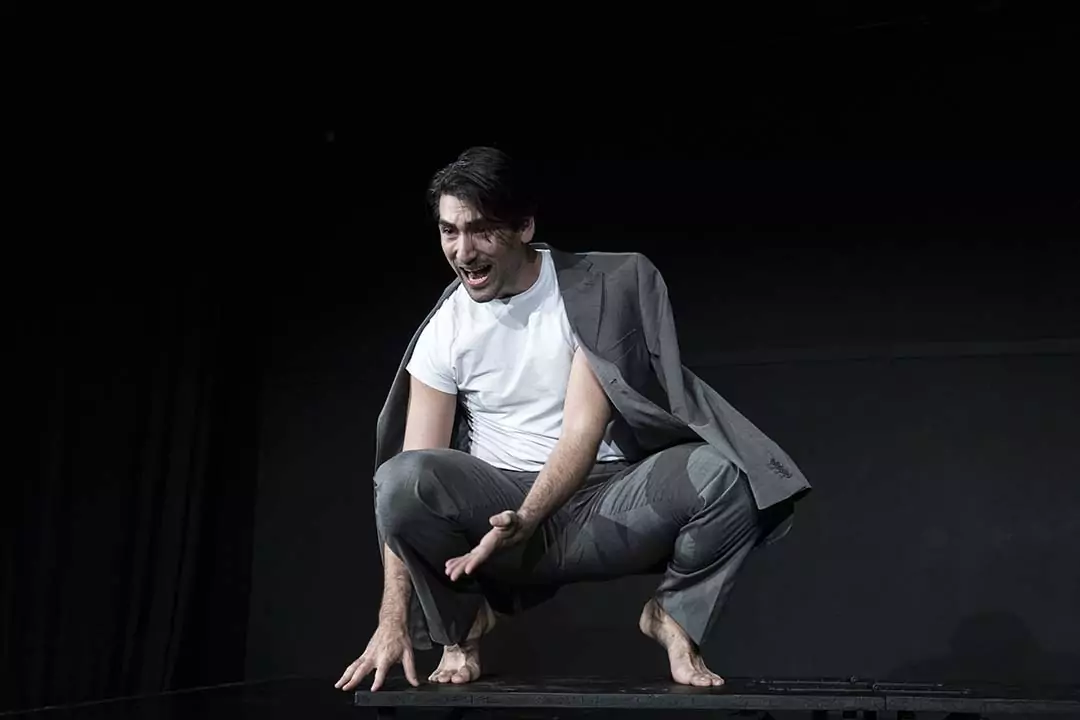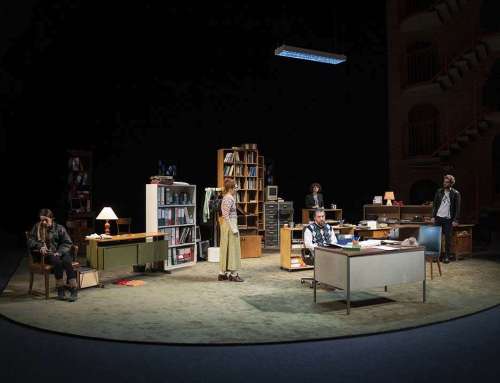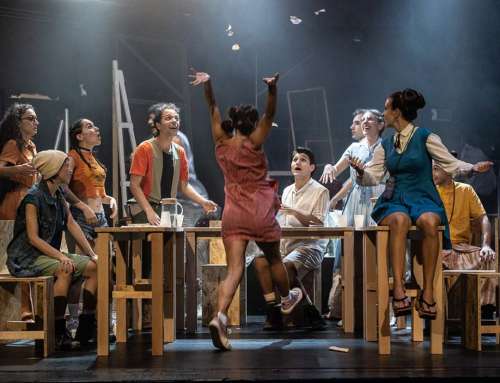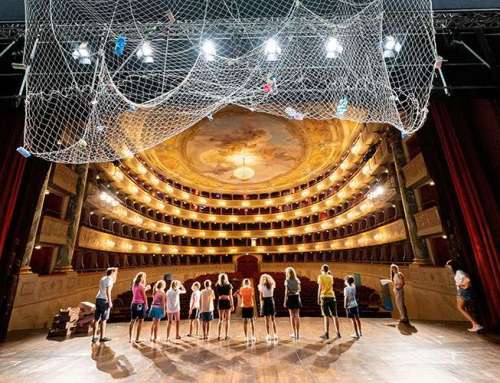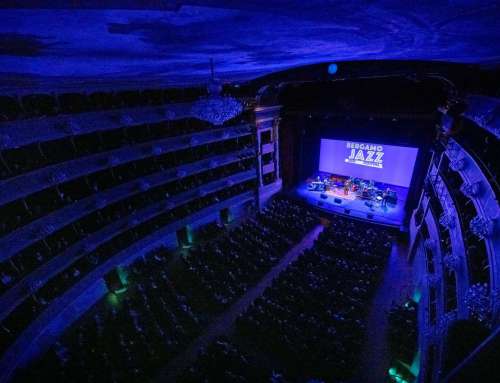Successfully inaugurated last December with King Lear died in Moscow by César Brie, the Altri Percorsi series of the Teatro Donizetti Foundation hosts on Thursday, January 16th at the Teatro Sociale (8:30 PM) In the Eye of the Labyrinth – Apology of Enzo Tortora, a show that evokes one of the most controversial and dramatic Italian judicial cases of the recent past. A monologue written and directed by Chicco Dossi and entrusted to the talented interpretative skills of Simone Tudda, nominated for the Hystrio alla Vocazione Award 2021, In the Eye of the Labyrinth – a Teatro della Cooperativa production, lasting 1 hour and 10 minutes without intermission – tells the story of Enzo Tortora, from the moment the well-known television presenter was arrested on the night of June 17, 1983, accused of Camorra association and drug trafficking. Difficult years followed, between prisons and courts, during which Tortora became the spokesperson for a strenuous battle for justice. A battle that ended with acquittal and a return to life. In the Eye of the Labyrinth was born almost by chance: “Near Corso Magenta, in Milan, right in front of the Teatro Litta, there’s Largo Enzo Tortora. Almost more a commemoration than a street sign – I don’t think it even has a street number – in small print, under the name, it bears the inscription ‘journalist’ and the dates of birth and death: 1928-1988. More out of curiosity than civic duty, one day, I decided to inform myself. I discovered that the ‘Tortora case’ was well known to my mother’s generation and completely unknown to mine,” Chicco Dossi recounts about the genesis of his show. The story of Enzo Tortora has gone down in history as a typical case of miscarriage of justice, “perhaps even more striking because it was perpetrated against a person known to Italians, since his face dominated for an hour and a half a week on national networks. An episode that took on increasingly chilling contours as I delved deeper: no presumption of innocence, accusations made without any evidence, magistrates eager to arrest the ‘big name’ who don’t read the trial documents, anti-mafia blitzes sold to the press even before they happen, all at the expense of a man totally unrelated to the facts and not associated in any way with Camorra circles. The Tortora case is incredible not only for the cruelty with which judges, press, and public opinion attacked an innocent person. Enzo’s story is the story of a man who, from the height of his position as a public figure, decided to become the spokesperson for a battle that has no political color: that of fair justice.” “The monologue interpreted by Simone Tudda unfolds in a continuous narration where the diegesis goes beyond narrative boundaries to flow into dialogue, rises in the historical account, where data are always told in an essential way to understand the events, alternates between the third person of an omniscient narrator who goes to spy on the inmates of Forte Longone prison and the first person of the journalist, up to digging into his interiority at the moment of arrest, trying to imagine how he might have felt, hunted down in the middle of the night by the carabinieri at the Hotel Plaza in Rome. Thus begin his years in the eye of the labyrinth, an expression that aims to unite the claustrophobia of those who don’t know when, and above all if, they will be able to escape from physical and mental imprisonment with the justicialism voyeurism of the press which, for one more copy sold, did not hesitate to ignore the facts to make room for the most base sensationalism,” concludes Chicco Dossi.
In stepping into the shoes of Enzo Tortora through the text of the show, Simone Tudda – as stated in an interview – tries to understand his bewilderment, confronting “the abyss, which always eludes, until the very end. It’s not by chance, in fact, that it’s at the end that the text imposes on me a quote from Enzo, requiring a moment of total adherence to the character, when he returns to television, in the 1987 edition of Portobello. There I try to gather 60 minutes of performance, of bewilderment (still nothing compared to four years of ordeal), I think about what it might have meant for him to return to TV, to tell everyone that the nightmare is over, to launch an appeal for justice to be truly just, for himself and for all of Italy, and condense all this into the synthesis: ‘So, where were we?'”

